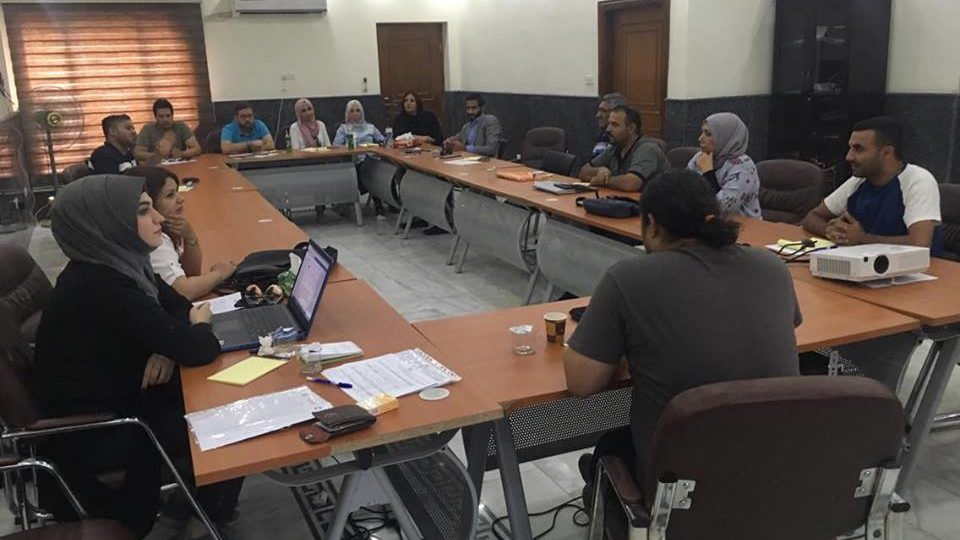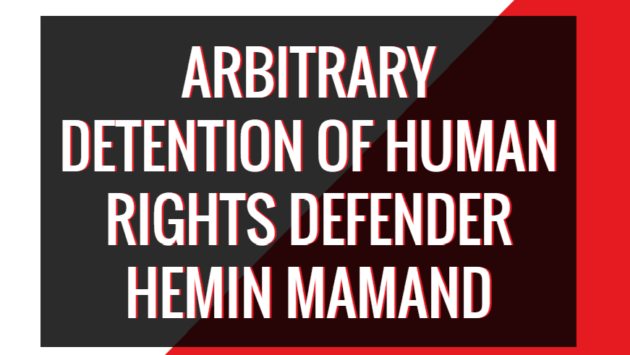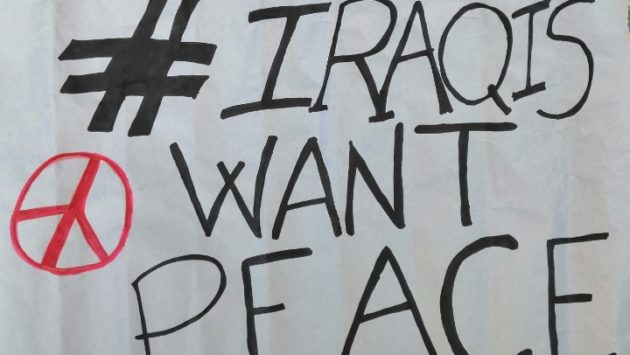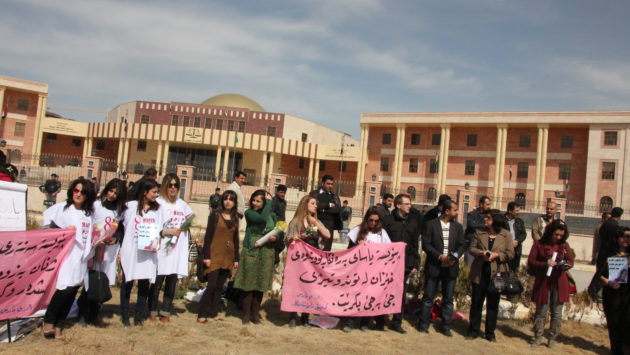Creating a Safe Environment for Iraqi Activists and Human Rights Defenders — an ICSSI Training in Baghdad
Given the growing activities of Human Rights Defenders (HRDs) in influencing reform on human rights issues in Iraq — particularly in these times of dramatic political change and uncertainty — they continue to be exposed to vulnerability and risk (from blackmail and intimidation to systematic assassination). Civil society must provide them with maximum protection. To this end, the Iraqi Civil Society Solidarity Initiative organized a training on protecting HRDs entitled, “Providing a safe environment for activists in Baghdad to protect human rights defenders” in Baghdad from 22 to 23 September. The training was attended by 15 activists, both women and men, working as part of the Iraqi Social Forum, its affiliate groups, or as activists and HRDs from other organizations.
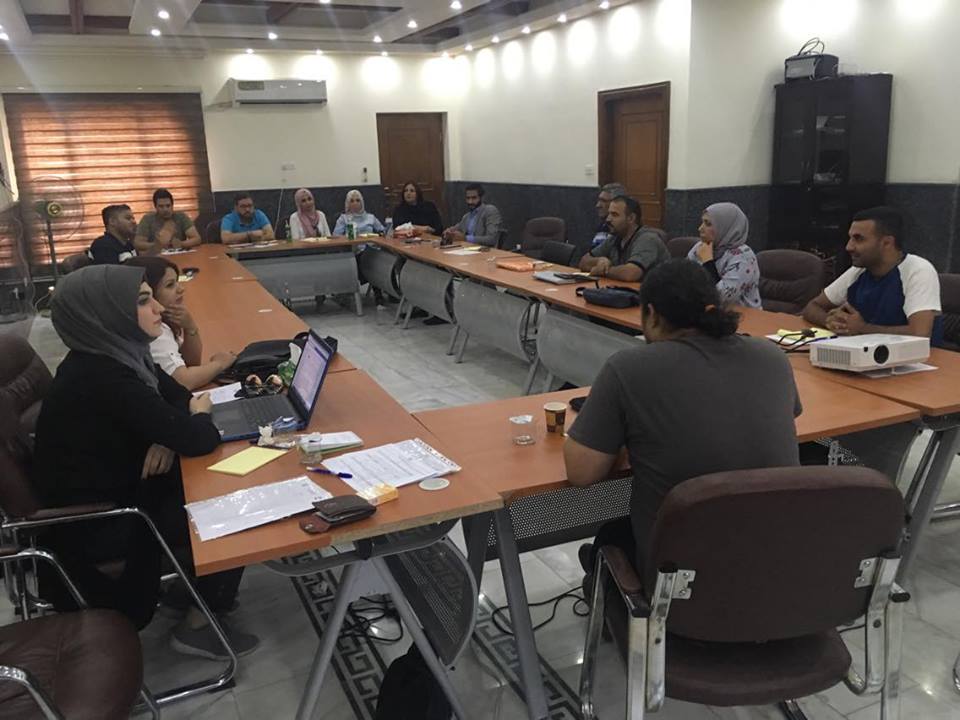
Emad Al-Sharaa, an expert on human rights issues, led the training, and focused on three basic types of protection: legal, field and digital. These were identified as the most important areas about which the HRD must understand issues of security. The training began with a detailed description of who the defender is and what role he/she plays in society. Emad Al-Sharaa went over the international guarantees now in place to ensure the protection of human rights. A clear understanding of these standards allows the individual defender to take on the role of active overseer, knowledgeable about what precisely those rights are, and what constitutes their violation. He/she is then able to act effectively to promote the values which underlie human rights.
For instance, attendees discussed the fact that everyone has the right to criticize governmental bodies, agencies and public organizations as a way to improve their performance, and to draw attention to aspects of their work that might hinder the promotion and protection of human rights and fundamental freedoms. Furthermore, there is an established procedure by which these complaints are to be submitted to the responsible local magistrate, or to any other competent authority provided by the state’s legal system. In response, these authorities must act at once, ensuring the protection of human rights and fundamental freedoms all the way through the process (for example, in the provision of adequate legal assistance, or other types of advice/assistance). The state is also required to open a prompt and impartial investigation if there is a plausible ground for believing that a violation of human rights has occurred in any territory under its jurisdiction.
Emad Al-Sharaa noted that the main threats to HRDs in the field, are: assassination, torture, defamation, arrest, enforced disappearances and abuse. One of the most prominent means of field protection he highlighted in training was the importance of adhering to principles of objectivity and neutrality, and to the assessment and measurement of potential risks. In addition, Al-Sharaa stressed the need to have open and clear communication with international human rights organizations, for this broad based coordination helps to provide HRDs with an acceptable level of protection ‘on the ground’.
The most important factors surrounding digital security were also reviewed, with a focus on how the use of social media makes HRDs particularly vulnerable to a range of different cyber threats. As a practical response to the need for digital protection, Tabarak Wameedh, project manager for ICSSI’s Shahrazad Project for the Protection of Women Human Rights Defenders, presented the Digital Clinic, which works with women human rights defenders, educating them and providing resources on digital security, and effective means of confronting risks on and offline.
The training was organized by the Iraqi Civil Society Solidarity Initiative with the support of the French organization CCFD and the Italian organization Un Ponte Per…

